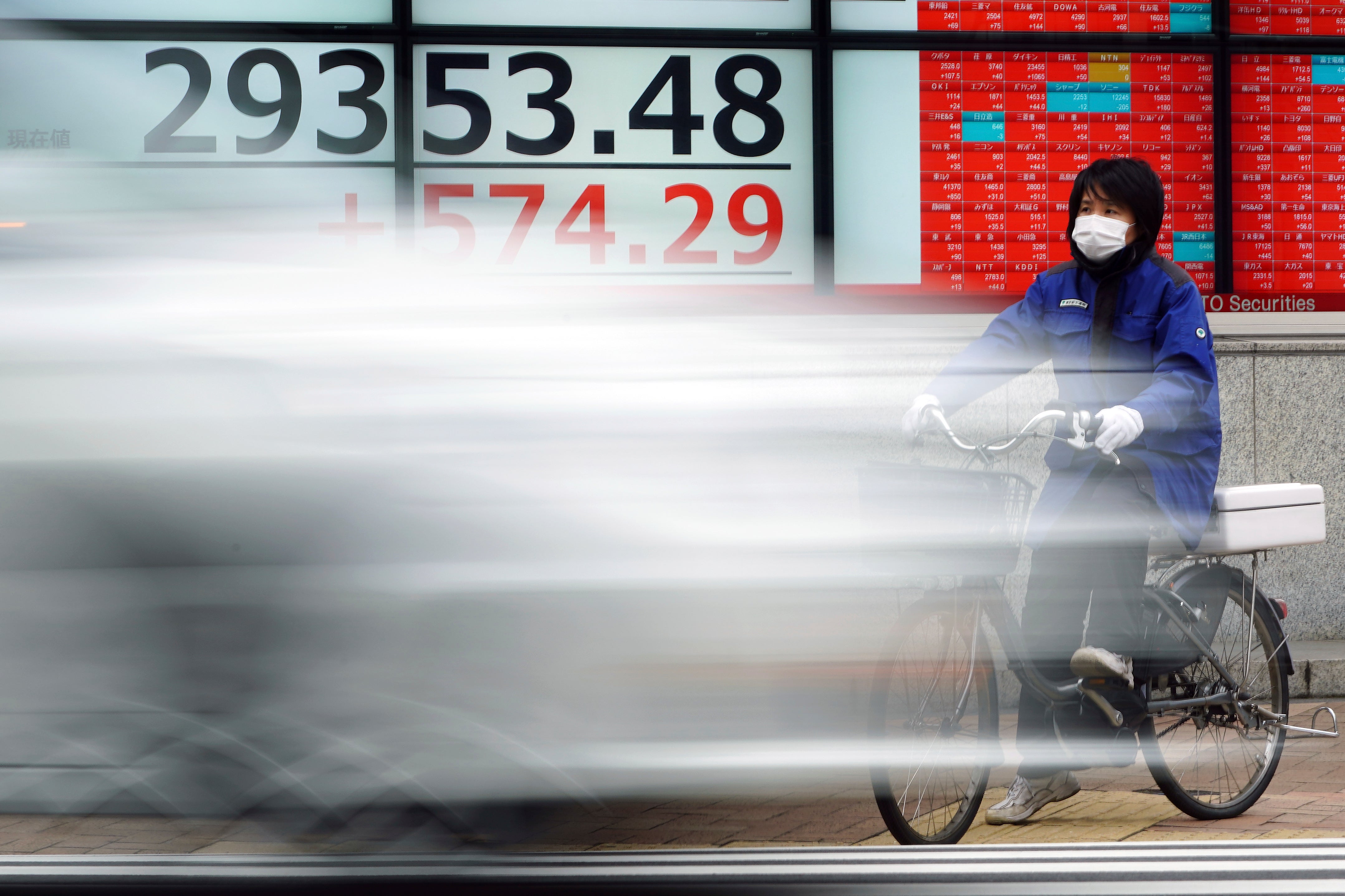Asian shares rise as optimism grows over global recovery
Asian shares have advanced, tracking a rally on Wall Street last week, with Japan’s benchmark momentarily reaching three-decade highs on growing optimism about the global economic outlook

Your support helps us to tell the story
From reproductive rights to climate change to Big Tech, The Independent is on the ground when the story is developing. Whether it's investigating the financials of Elon Musk's pro-Trump PAC or producing our latest documentary, 'The A Word', which shines a light on the American women fighting for reproductive rights, we know how important it is to parse out the facts from the messaging.
At such a critical moment in US history, we need reporters on the ground. Your donation allows us to keep sending journalists to speak to both sides of the story.
The Independent is trusted by Americans across the entire political spectrum. And unlike many other quality news outlets, we choose not to lock Americans out of our reporting and analysis with paywalls. We believe quality journalism should be available to everyone, paid for by those who can afford it.
Your support makes all the difference.Asian shares mostly rose Monday, echoing the rally on Wall Street last week, with Japan s benchmark momentarily reaching three-decade highs on growing optimism over the global economy
Japan's Nikkei 225 surged 2.1% in morning trading to 29,378.18. Australia's S&P/ASX 200 rose 0.8% to 6,897.80. South Korea's Kospi shed nearly 0.4% to 3,109.14. Hong Kong's Hang Seng jumped nearly 1.0% to 29,575.61, while the Shanghai Composite picked up 0.8% to 3,525.58.
Analysts expect the world economy to grow this year after contracting last year because of the pandemic. Export-driven Asian nations, such as Japan, South Korea and China, are expected to get a big boost out of the recovery.
Investors have been encouraged by surprisingly good corporate earnings reports, news that a recent surge in new coronavirus cases is easing, and progress in the distribution of vaccines.
In Asia, some companies have been slammed by the effects of border controls and remote working over COVID-19. But others have been big gainers, such as Japanese video-game company Nintendo Co. People stuck at home have turned in droves to Nintendo games, and the company, which has struggled at times, appears to be headed toward a record profit for the year.
Venkateswaran Lavanya of the Asia & Oceania Treasury Department at Mizuho Bank noted that euphoria was mixing with reality checks about vaccines slowly being delivered around the world.
“South Korea is relaxing social distancing measures, while Japan is considering lifting the emergency in certain prefectures if the situation improves,” Lavanya said of the other positive developments for the economy.
“Against this backdrop, the Japanese stock market is set to close at its highest since 1991," she said.
On Wall Street, the S&P 500 ended the week notching its fifth gain in a row and its biggest weekly increase since November. The benchmark index rose 0.4% and ended the week 4.6% higher, more than making up for its decline in January. The latest gain nudged the S&P 500 to another all-time high.
The Nasdaq composite also capped the week with a record high. Small -company stocks fared even better than the broader market, a sign that investors are feeling more optimistic about the economy.
The S&P 500 index rose 0.4%,to 3,886.83. Its weekly gain was its biggest since November. The Dow Jones Industrial Average gained 0.3% to 31,148.24. The Nasdaq rose 0.6% to 13,856.30. The Russell 2000 index of smaller company stocks climbed 1.4%,to 2,233.33, a record high.
Investors are focused on the prospects for more stimulus. President Joe Biden urged Democratic lawmakers this week to “act fast” on his economic stimulus plan.
In energy trading, benchmark U.S. crude rose 52 cents to $57.37 a barrel in electronic trading on the New York Mercantile Exchange. It gained 62 cents on Friday to $56.85 per barrel. Brent crude, the international standard, added 48 cents to $59.82 a barrel.
In currencies, the U.S. dollar rose to 105.49 Japanese yen from 105.37 yen. The euro cost $1.2035, down from $1.2042.